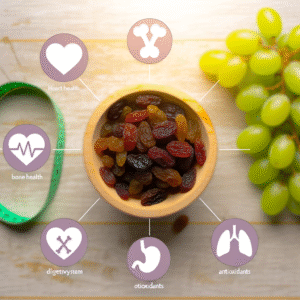Ever heard the phrase “You are what you eat?” Well, when it comes to fats, this couldn’t be more true. Fats get a bad rap, but not all fats are created equal. In fact, some are essential to your health. So how do you know which fats are helpful and which could hurt you? Let’s break it down in simple terms.
What Are Fats, Anyway?
Fats are a nutrient that your body needs to function properly. They give you energy, help your body absorb vitamins, and even support brain health. But the type of fat you eat makes all the difference.
The Two Main Types of Fats
Saturated Fats
Saturated fats are usually solid at room temperature. Think butter, cheese, and fatty cuts of meat. While you don’t need to avoid them completely, eating too much saturated fat may raise your LDL (bad) cholesterol, increasing the risk of heart disease.
Common sources of saturated fats include:
- Red meat (like beef and lamb)
- Butter, cheese, and cream
- Fried foods
- Baked goods made with palm or coconut oil
- Processed snacks
Unsaturated Fats
Unsaturated fats are the good guys! These fats are usually liquid at room temperature and can actually lower your “bad” cholesterol and support heart health. They’re mostly found in plants and fish.
There are two kinds of unsaturated fats:
- Monounsaturated fats: Found in olive oil, avocado, and nuts
- Polyunsaturated fats: Found in fatty fish (like salmon), flaxseeds, and walnuts
Swapping in more unsaturated fats can make a big difference in improving your overall health.
What’s the Big Deal About Cholesterol?
Here’s the deal—your body needs cholesterol to function. But too much of the wrong kind can clog your arteries and raise the risk of heart attacks or strokes. Saturated fats are known to increase LDL (bad) cholesterol, while unsaturated fats help boost HDL (good) cholesterol.
Which Fats Should You Eat More Of?
If you’re choosing between cooking with butter (saturated) and using olive oil (unsaturated), go with the olive oil! When possible, try to:
- Use olive, canola, or avocado oil for cooking and salads
- Snack on nuts or seeds instead of chips
- Eat fish like salmon or tuna twice a week
- Limit high-fat dairy and processed meats
- Choose lean cuts of meat and plant-based proteins
Who Needs to Worry About Fat Intake?
The truth is, we all do—whether you’re young or old, active or not-so-active. Heart disease is still one of the top causes of death, and watching the types of fat you eat can make a huge difference. Keeping a balanced approach is key.
What’s a Simple Way to Remember the Difference?
Here’s an easy trick: Saturated = Solid = Skip (or limit). Unsaturated = Liquid = Useful. So next time you’re choosing between a plate of fries or a bowl of salmon-topped salad, you’ll know which one your heart will thank you for.
Real-Life Example
Last summer, I decided to start replacing butter in my cooking with olive oil. At first, I missed the creamy taste, but after a while, I didn’t even notice the difference. When I went back for a check-up, my doctor told me my cholesterol numbers had improved. It’s amazing how small changes add up.
When Should You Cut Back on Saturated Fats?
If you’ve been told you have high cholesterol, high blood pressure, or a family history of heart disease, it’s a good idea to limit your saturated fat intake asap. Small tweaks—like choosing grilled chicken over fried—can really help.
Quick Q&A
What’s worse: saturated fat or trans fat?
Trans fats are actually worse. Found in some fried foods and baked goods, trans fats not only raise bad cholesterol but also lower good cholesterol. Most are banned now, but always check food labels to be safe.
Which fat is best for cooking?
Olive oil and avocado oil are great picks. They’re rich in healthy monounsaturated fats and have high smoke points, meaning they can handle heat without breaking down.
The Takeaway
You don’t need to fear fat—you just need to be smart about the kind you eat. Saturated fats are fine in small amounts, but you’ll do your body a favour by loading up on heart-healthy unsaturated fats. Make small swaps, eat more whole foods, and trust your gut (and your heart) to guide you!
Your Turn! What’s one fat swap you’re willing to try this week? Let us know in the comments below!




